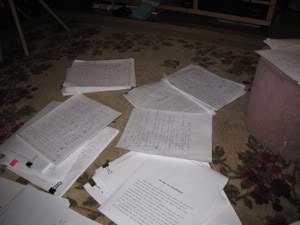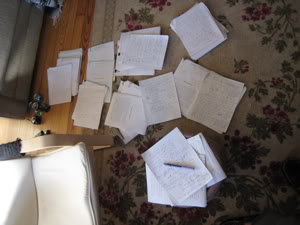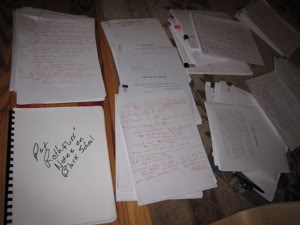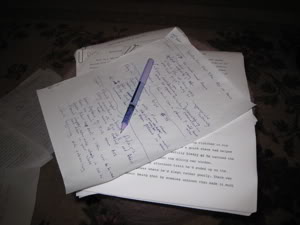So, I’ve been having trouble getting started in WebMage book 5. It’s moving, but not nearly as fast as I need it to. Anyway, last night I wrote someone shooting Ravirn again, always a jump start moment, though I wasn’t entirely sure who pulled the trigger when I wrote the scene. This morning on the treadmill I came up with what felt like the right answer, though I couldn’t figure out who the prime mover behind the shooter was at first. After a while I had what sounded like a crazy idea that just tasted right even though I didn’t know how I would make it work (call it character X).
So, finally, I’m writing the reveal on the shooter, still unsure why I’d chosen that character and why my brain kept telling me character X had given the orders. At that point, I very consciously split off a chunk of brain to work on that problem while the front systems were writing the actual scene. Just as I get to the sentence where it matters that I know the answer (the reader doesn’t need it for a good couple of chapters) the bit of brain that’s supposed to work on the problem comes back with the reason in a very sarcastic smell the coffee, McCullough you idiot, kind of way.
Turns out that if I’d bothered to go check my $%@*&%#@ outline the answer would have been obvious. Of course it has to be character X. The reasons were already in the master plan. Hell, I even foreshadowed them in books 3 and 4. The important lessons learned here are A) read the %^@$$# outline once in a while, and, B) don’t bang your head on the wall trying to figure something clever out, just write the damned scene and get out of your own way.
(Originally published on the Wyrdsmiths blog December 3 2008, and original comments may be found there. Reposted and reedited as part of the reblogging project)




